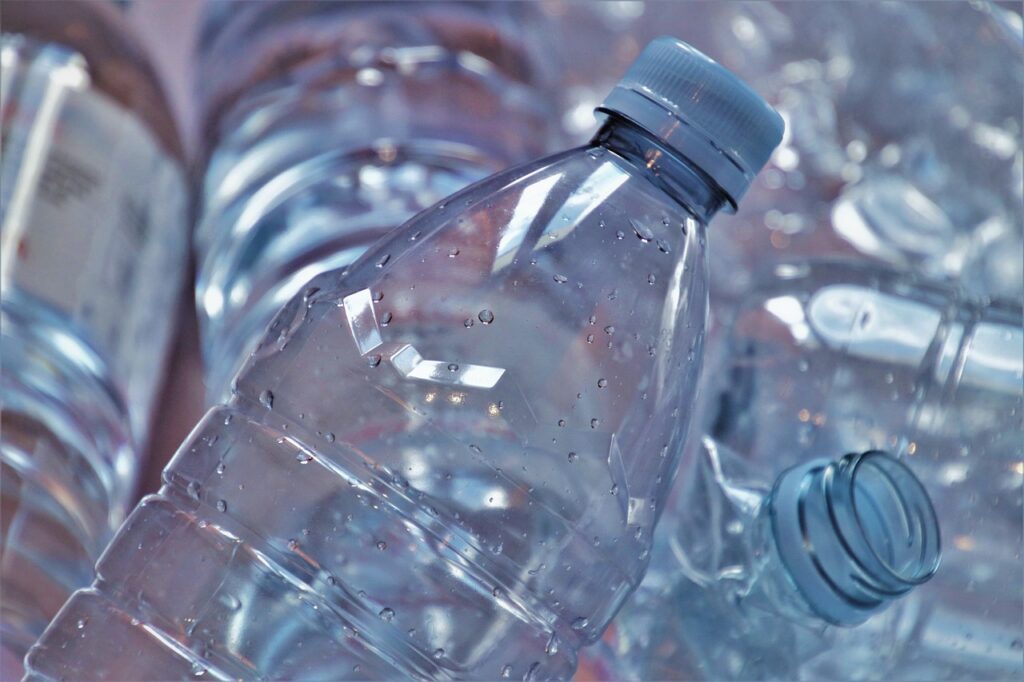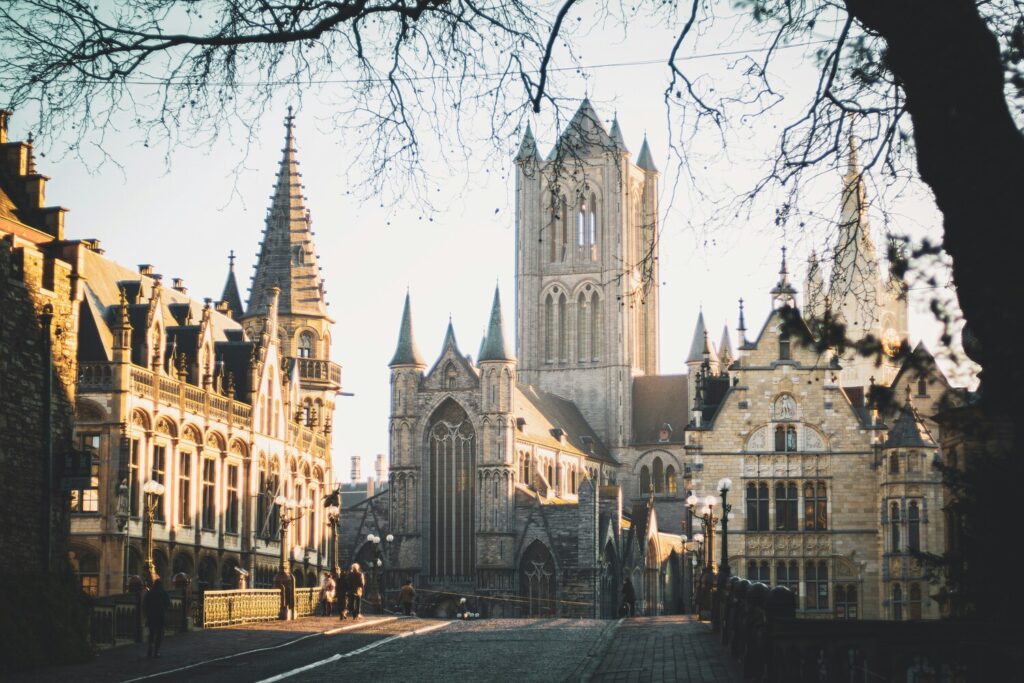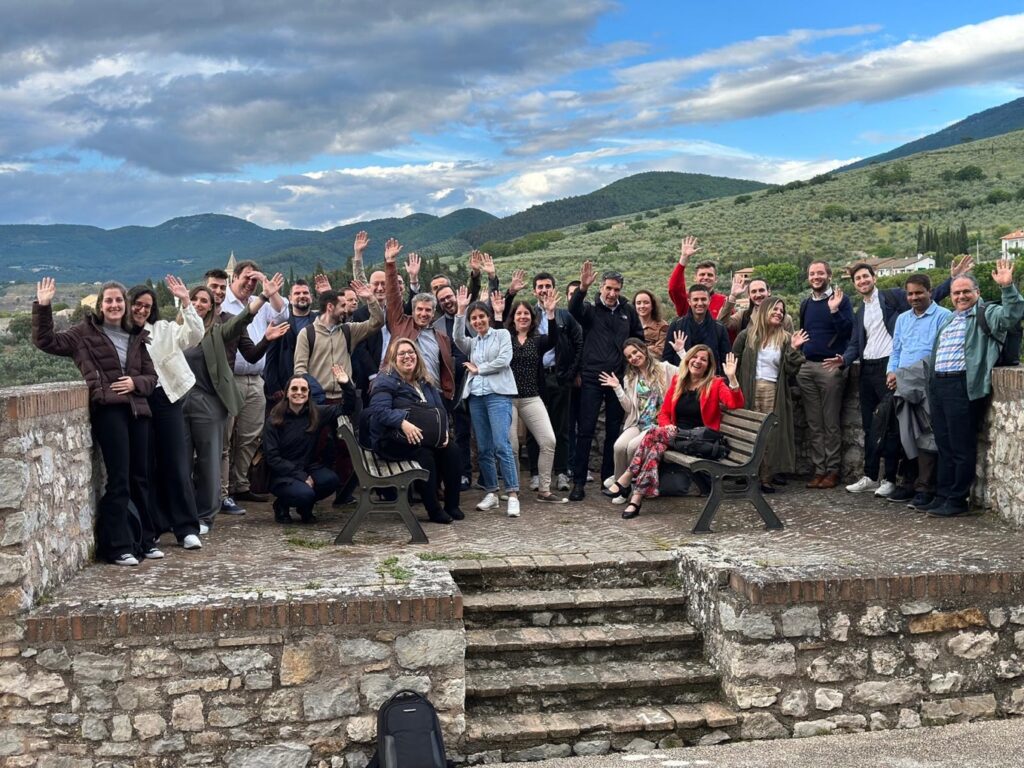31st May – 1st June 2023. We all know that plastics are a necessary component of our daily life due to their numerous desirable qualities like strength, great barrier properties, resilience, wide range of applications, low cost and lightweight. Due to technical obstacles, such as the presence of complex fractions in the plastic waste streams, (e.g. contaminants, multilayer materials, or the mixing of plastics with other types of waste that cannot be separated in a practical way), a proper plastic recycling process is very difficult to achieve.
To address this, the EU-funded project PLASTICE is developing a set of new valorization processes that are aligned with the EU’s chemical recycling technology roadmaps. One year into the work, the consortium met for two days at TotalEnergies premises in Feluy, Belgium, to discuss impact so far and to go over the technologies being tested.
These technologies are: cascade enzymatic hydrolysis, combined gasification and chemical post-treatment, hydrothermal liquefaction and microwave assisted pyrolysis. Each of them is being validated in 4 separated demo sites where, furthermore, some complementary AI and advanced data analysis, such as a dedicated traceability tool, will be developed for the optimisation of plastic recycling and sorting processes. A collection and analysis of pre- and post-consumer textiles, as well as experiments on increasing substrate concentration and on recovered polyester properties have been ongoing for the last few months.
In this first year, PLASTICE has already started to implement cutting-edge technologies along the whole recycling value chain and to valorise a wide range of unsorted plastics and textile wastes in the four demosites. The sustainability of the process is being also assessed, in addition to the lab-scale process optimization and further scale-up of the technologies. For that purpose, key performance indicators (KPIs) are being assessed in terms of process sustainability for the four demo sites. This evaluation will be conducted by means of a KPI calculator, whose alfa version has been already released to the consortium.
In Feluy, the consortium had the chance to visit part of the TotalEnergies OneTech Belgium facility, specifically a demonstration plant, the pilot facilities, and the polymer application hall. Lighter than many alternative materials, polymers help reduce the carbon footprint of end-use applications through enhanced energy efficiency. TotalEnergies’ teams are working alongside all the professionals in the value chain, including plastic manufacturers, research centers, waste collection and sorting companies, and their customers to accelerate the emergence of a circular economy. The Company is developing different plastic recycling processes and using renewable raw materials, with the ambition to produce 30% circular polymers by 2030.

The project partners also looked at how to ensure the project continues to deliver results after it ends. In fact, on day 2 of the meeting, an exploitation workshop on IPRs key concepts & IPR Matrix was held by JB2B, a PLASTICE partner leader in exploitation activities, during which the partners gave their input on the – already achieved and potential future – project results that will be exploited for the sustainability of the project after its end. All the scale-up tasks are already under development so that PLASTICE succeeds with the challenge of implementing new technologies for plastic recycling. The activities developed in the project will then get closer to the goal of demonstrating innovative and sustainable routes to close the plastic production loop.
Another important step for PLASTICE is that, since December 2022, the project has been part of the A.SPIRE network, the European Association which manages and implements the Processes4Planet co-programmed Partnership. It represents innovative process industries, 20% of the total European manufacturing sector in employment and turnover, and more than 180 industrial and research process stakeholders from more than 20 countries spread throughout Europe. A.SPIRE brings together cement, ceramics, chemicals, engineering, minerals and ores, non-ferrous metals, pulp and paper, refining, steel and water sectors, several being world-leading sectors operating from Europe.
“A great consortium with very well represented capacities at industry, waste management, RTO’s and also at university level had fruitful discussions on presenting outcomes, results from deliverables, and even first promising results from lab experiments done in the four technologies”, says Emiliano Mesa and Clara Jarauta, project coordinators from Fundación CIRCE. “Furthermore, action points were agreed for the next 6 months where the scale-up processes of the recycling technologies are being started together with the validation of the results obtained”.



